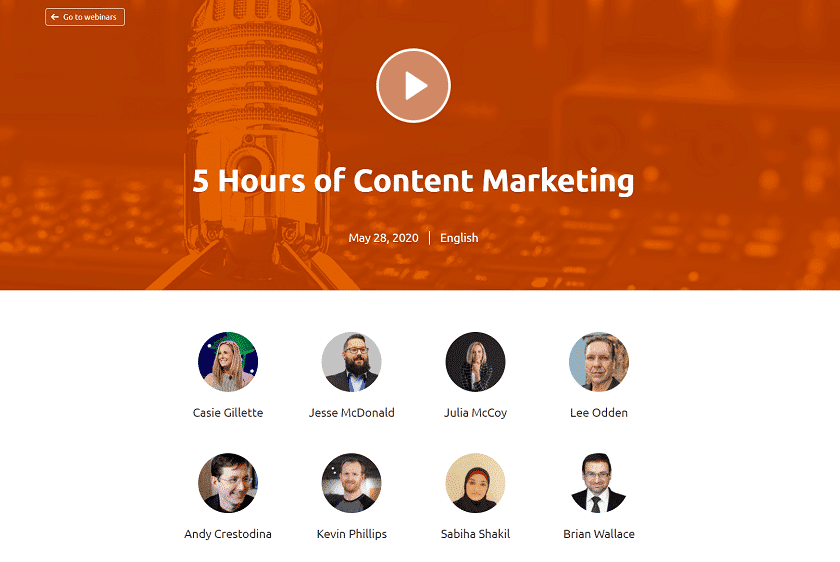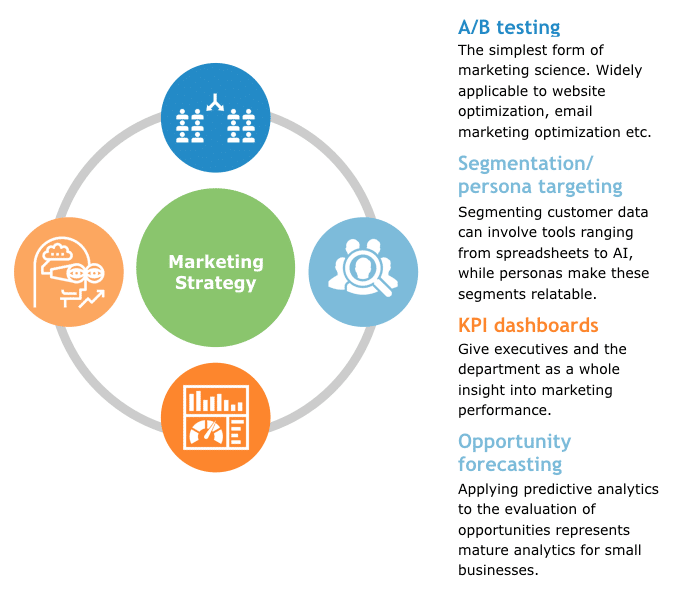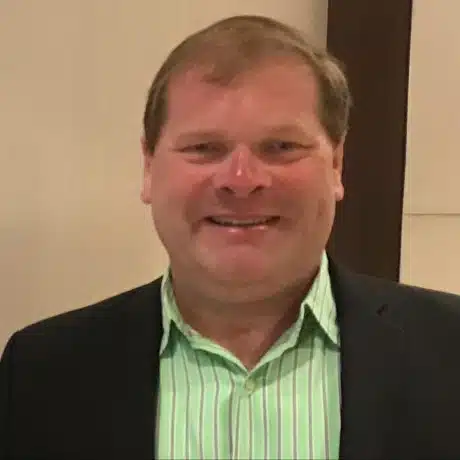
Executive Insights: Navigating Digital Transformation and Virtual Events
It was my great pleasure to work with ON24 for many years while at SAP Marketing and see them evolve as a leader in webinars and virtual events. Webinars themselves have evolved over the years to become an important part of the marketing portfolio, and ON24 has been at the forefront of this evolution.
My former SAP colleague Scott Feldman and I proudly delivered the opening keynote at the very first ON24 Webinar World four years ago – now that seems like an eternity ago! We were followed on the Webinar World agenda by both Forrester and SiriusDecisions analysts – organizations I had also worked with for many years.
The analyst’s perspective is especially critical in the era of “Modern Marketing” where we must be both data- and insights-driven and have an “outside-in” view for our marketing campaigns and programs.
I have had the pleasure to see Cheri Keith present as an analyst at multiple events over the years, and her perspectives for SiriusDecisions consistently showcase a broad expertise on B2B marketing, events, marketing operations, thought leadership and much more. Cheri joined ON24 earlier this year as Head of Strategy and Research.
It was my pleasure to recently connect with her to discuss the evolution of digital marketing in the face of a global pandemic, the implications of a shift to virtual events, and marketing analytics, data, technology (Martech) and more.
Q: During the current global COVID19 pandemic, we have seen literally overnight a shift to a “digital first” strategy that has dramatically accelerated digital transformation. In-person events, long a staple of marketers, are not an option currently. Cheri, what is your perspective on this and where do you see these trends leading and what are key lessons learned?
A: The first few months of the pandemic we were all in panic and reactionary mode when it comes to in-person events. The discussion from the first moments of quarantine were how do I take this event that I’ve planned and take it as is and deliver it in a digital format. There were many successful events in this time but marketers across sub-functions learned a lot from virtual events.
We’re now processing all of that knowledge and creating digital experiences that have learnings and insight from those events built into the strategy. Marketers are thinking about the goals they need to achieve and what audiences are demanding and building from there.
I think one big area that marketers have made changes to is agendas. The notion of having a digital experience replicate the time allocation set aside from physical events has been shed. Just because the physical version of the experience was 3 days long with 10 hours of programming doesn’t mean the digital experience should be. I’ve seen marketers condense down content, run it as part of a weekly series, etc. all ways to keep the audience engaged without being tied to a physical event construct of timing.

The other place that marketers are learning a lot about is how to amp up the engagement in the digital experiences—turning video on is mandatory at this point I would say, but how to offer up engagement through interactivity, polling and surveys is also coming the forefront. I’d love to see more marketers take advantage of the construct of a digital experience without slides. More conversational and drives more of a human connection with the audience.
Finally, I’m seeing an increase in the “atomization” of events. If you think about a large event a company would run, it is actually a series of various experiences for different personas and for different stages of the buyer and customer journey. So, there isn’t this need for one large physical event to equal one large digital experience. Marketers are thinking about how to create those micro-digital experiences for those audiences. This is a trend I’m excited about and look forward to seeing the innovation from marketers in this area.
Q: Agile marketing key is a to accelerate marketing transformation and keep up with ubiquitous change in a challenging and constantly changing environment. How is agile marketing a key to both marketing and digital transformation, and what are some use cases and best practices we can learn from?
A: I’m not an expert in agile but I do think a lot of the guiding principles can be beneficial for marketers, even if they haven’t fully operationalized agile methodologies within their organization. I feel that principles of flexibility and having an open mind to solving the challenge is critical. If you base your operations around responding to situations, rather than having plans and processes set in stone leads to a marketing function that can better adapt to changes.
I think this goes hand-in-hand with being data-driven as well. For example, just because a program that was high-performing in February doesn’t’ mean it is today. And if that program takes a lot of effort to execute but we’re seeing diminishing returns, it is time to re-evaluate that program. It isn’t admitting defeat or failure to adapt. Listen to how audiences are responding, understand the buying signals and responding in a way that is continuously testing and optimizing.
Q: Cheri, with the explosion of data and information across all industries and organizations of all size, how should a “modern marketer” embrace marketing analytics and data-driven decision making? Are there key skills they should focus upon?
A: I believe that every marketer should be data-driven in a way that drives optimization, rather than one that creates analysis paralysis. The explosion in data sources has led to an increase focus on analyzing it. But marketers excel when they’re able to prioritize what data to consume and take action on. I think these are the skills that every marketer must master.

Beyond that, there is certainly a need for there to be consistency in the data across marketing and sales. Which is why we’re seeing the rise of revenue operations. I think that there is a specific toolset for a member of those teams that serves to help the broader marketing and sales functions. The members of these marketing operations teams have a unique skillset in data and analytics that is deeper than what should be expected of the rest of the marketing and sales organizations.
Q: Scott Brinker, the “father of marketing technology and MarTech”, talks about the rise of the “marketing technologist” and the importance of MarTech for all marketers, not just those in analytical and data sciences and related roles. How should a “modern marketer” react to this and what steps should they take to be best prepared to be most effective?
A: I believe that marketing technology is pervasive in b2b. Based on the investments in technology by marketing, it certainly stands to reason for there to be a member of the marketing team that is in charge of overseeing these investments and utilization. Without someone to help to shepherd technologies, it can run amok in the marketing organization. Additionally, based on the Gartner data that shows that marketers only use 58% of the capabilities Martech stack, there needs to be some oversight and governance into making the most out of what you have.
As far as advice for modern marketers, it is important to always have an open-mind and take time away to learn about what others in the industry are doing. I’ve spoken about being a good student of digital marketing before, but in this case, you can turn that approach into being a good student of Martech. Read up on the topic, attend webinars and digital events. Even if it isn’t technology you would implement within your organization, understanding the driving factors for others doing so can be important. Both in how you do your job today and how you may do it in the future.
Q: Cheri, looking back on your marketing and analyst career, are there any key lessons-learned from a long-time industry marketing leader, analyst and thought leader you would like to share?
A: Never put up barriers for yourself. Work is challenging enough—be it in an advisory, practitioner or agency world and there are inherent challenges based on your role or the culture. A guiding principle I try to stand by is to not complicate things for complexity or vanity’s sake.
Taking a simple approach to solving a problem can be effective. I think marketers can get caught up on trying to demonstrate everything within their marketing toolkit, rather than finding an easy way to get it done. The same could be said for when you try to avoid including the right stakeholders by using workarounds. Looking at approaches to simplify efforts doesn’t make you lazy, it makes you efficient.
Cheri, thank you for your time today and a highly informative discussion of marketing including digital transformation, virtual events, marketing analytics and Martech and so much more. We look forward to hearing more in the future from you as marketing continues to both transform and digital and marketing transformation continue.
Cheri is Head of Strategy and Research for ON24 and is a a recognized thought leader in the field of marketing, in-person and digital events, marketing technology and agencies
Follow her on Twitter at @Cheri29
Fred is a Research Director at Dresner Advisory Services, a high technology industry marketing veteran and former Senior Marketing Director for SAP Global Marketing.






